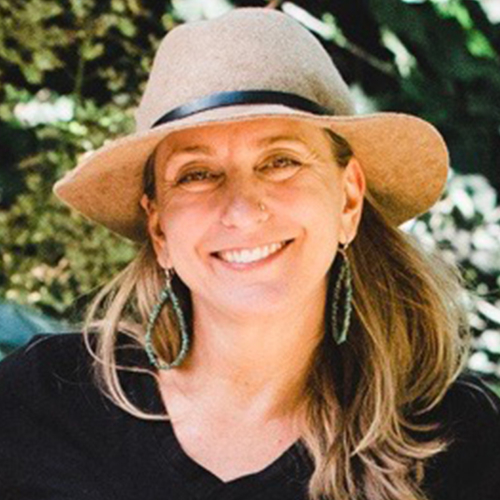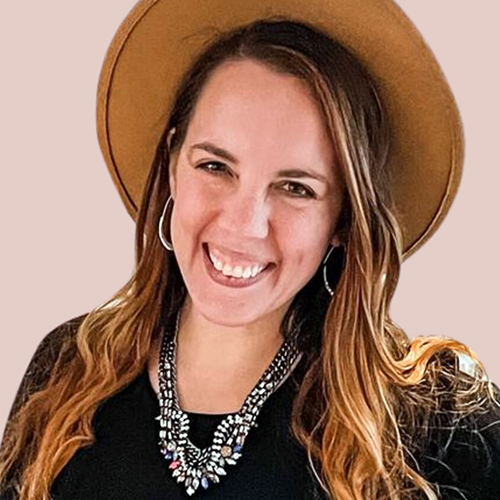 Relationship HCPs/Family Online Course(s) & Continuing Education
Relationship HCPs/Family Online Course(s) & Continuing Education
Access the latest clinical skills and research for Relationship HCPs/Family for PREGNANCY, LABOUR & CHILDBIRTH professional training. These Relationship HCPs/Family online courses provide practice-changing skills and valuable perspectives from leading global experts. This Relationship HCPs/Family education has been accredited for a variety of CEUs / CERPs and can be accessed on-demand, at your own pace.


Dr. Britta Bushnell (she/her) is author of Transformed by Birth, host of the podcast Transformed, veteran childbirth educator, celebrated speaker, mythologist, wife and mother, and specialist in childbirth, relationship, and parenting. For over 20 years, Dr. Bushnell has worked with individuals and couples as they prepare for the life-changing experience of giving birth. Her work with parents has been enriched by her doctoral work in mythology and psychology, her years spent as a co-owner of Birthing From Within, as well as her dedicated study of solution-focused brief therapy, storytelling, and skills for supporting intimate relationships while parenting.
Britta is an engaging teacher, speaker, and presenter. Whether addressing a room of expectant parents, new mothers, or seasoned birth professionals, Britta has a way of captivating and inspiring them all. She has presented at conferences such as DONA International, MANA, ICEA, and Lamaze. Additionally, Britta has been featured on several popular podcasts including Informed Pregnancy, Birthful, and Atomic Moms. In 2016, in recognition of her transformative childbirth classes, Britta was awarded "Educator of the Year" by the Southern California Doula Association (DASC).
Topic: Awakening the Parent: Are You Supporting or Sabotaging Your Client’s Transformation? - [View Abstract]
Beneath the surface of every labor and delivery room interaction between physicians, nurses, and patients (as well as their partners) vibrate the pressures of power. Who is in charge? Regardless of the stated beliefs or legal truth about who IS in charge, the dance between the characters in the labor room often plays out archetypally. Archetypes are a recurrent symbol or motif found in literature, art, or mythology that live within the unconscious influencing how individuals behave, think, and feel. While many archetypal energies are possible during labor, the dominant archetypal energies active in a labor room tend to vacillate between that of Caretaker, Orphan, Ruler, Hero, Innocent, and Warrior. Nurses, often drawn to the career to help others, connect with the Caretaker archetype. However, due in part to hierarchical structures within the hospital setting, nurses can be left feeling unseen, undervalued, or powerless activating the Orphan archetype. Comparable patterns can be observed in obstetricians with the Ruler and Hero and in parents with the Innocent and Warrior archetypes. Without consciousness of the power dynamics between these archetypal energies, satisfaction in both the process and outcome is often fleeting for parents and can lead to burnout in professionals. Greater understanding of the needs of each activated archetype provides individuals needed guidance in how to better navigate labor room power dynamics and why doing so matters profoundly.

Not Handmaiden or Hero: The Impact of Nursing Identity on Nurse-Patient Relationship and Care

Maggie is a nurse, educator, and writer.
She began her nursing career in 2009 and has since practiced in hospitals and communities nationwide, primarily in labor and birth environments. Maggie maintains a bedside practice at a community hospital in Pennsylvania, in addition to her non-profit work as Founding Executive Director of Your BIRTH Partners.
Maggie is currently pursuing her PhD in Nursing and loves educating, mentoring, and learning alongside other nurses. Her research interests are trauma-informed care, secondary traumatic stress, trauma-responsive work environments, and nurse identity. She has always enjoyed writing, both through blogs and in scholarly environments. Much of her recent pursuits have focused on authoring a transformational memoir and contributing to academic journals.
Her advocacy focuses on improving perinatal care in hospital environments through trauma-informed care and community collaboration. When she's not dreaming up good trouble with other changemakers, she's doing yoga, reading a book, traveling, indulging in delicious food, soaking in fresh air outside, or hanging with her awesome partner and kids.
The role of nurses has often been dictated by those outside the profession. First, we were seen as doctors' handmaidens, which informed a collective consciousness that we were only valuable in support of paternalistic healthcare. As the role of nurses expanded, the public came to recognize our unique skills, identified us as the most trustworthy profession over two decades, and labeled us heroes. In response, we have positioned ourselves as a neutral identity that is "just there to help." However, this helper or savior identity has several negative ramifications including a preoccupation with how our care might be judged in the event of an unexpected outcome, which ultimately creates a divide between us & those in our care. Nurses benefit from identification of and reflection on their motivation for pursuing nursing, their current care practices, and how they can shift their mindset to release the rigidity, guilt, and fear that is associated with saviorism. We cannot allow patterns of saviorism to continue to dominate our profession. The health of our patients & ourselves depends on us stepping away from "helping" and into a standard of trauma-informed advocacy.







